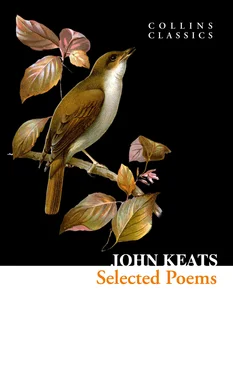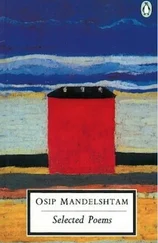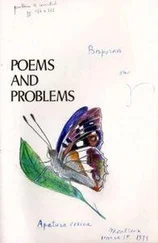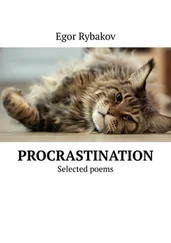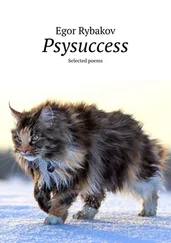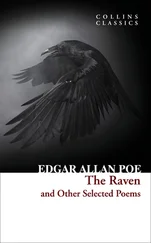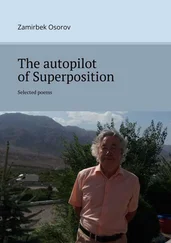Come down, we pray thee, ere the hot sun count
His dewy rosary on the eglantine.”
Lorenzo, courteously as he was wont,
Bow’d a fair greeting to these serpents’ whine;
And went in haste, to get in readiness,
With belt, and spur, and bracing huntsman’s dress.
XXV.
And as he to the court-yard pass’d along,
Each third step did he pause, and listen’d oft
If he could hear his lady’s matin-song,
Or the light whisper of her footstep soft;
And as he thus over his passion hung,
He heard a laugh full musical aloft;
When, looking up, he saw her features bright
Smile through an in-door lattice, all delight.
XXVI.
“Love, Isabel!” said he, “I was in pain
Lest I should miss to bid thee a good morrow
Ah! what if I should lose thee, when so fain
I am to stifle all the heavy sorrow
Of a poor three hours’ absence? but we’ll gain
Out of the amorous dark what day doth borrow.
Goodbye! I’ll soon be back.” – “Goodbye!” said she: –
And as he went she chanted merrily.
XXVII.
So the two brothers and their murder’d man
Rode past fair Florence, to where Arno’s stream
Gurgles through straiten’d banks, and still doth fan
Itself with dancing bulrush, and the bream
Keeps head against the freshets. Sick and wan
The brothers’ faces in the ford did seem,
Lorenzo’s flush with love. – They pass’d the water
Into a forest quiet for the slaughter.
XXVIII.
There was Lorenzo slain and buried in,
There in that forest did his great love cease;
Ah! when a soul doth thus its freedom win,
It aches in loneliness – is ill at peace
As the break-covert blood-hounds of such sin:
They dipp’d their swords in the water, and did tease
Their horses homeward, with convulsed spur,
Each richer by his being a murderer.
XXIX.
They told their sister how, with sudden speed,
Lorenzo had ta’en ship for foreign lands,
Because of some great urgency and need
In their affairs, requiring trusty hands.
Poor Girl! put on thy stifling widow’s weed,
And ’scape at once from Hope’s accursed bands;
To-day thou wilt not see him, nor to-morrow,
And the next day will be a day of sorrow.
XXX.
She weeps alone for pleasures not to be;
Sorely she wept until the night came on,
And then, instead of love, O misery!
She brooded o’er the luxury alone:
His image in the dusk she seem’d to see,
And to the silence made a gentle moan,
Spreading her perfect arms upon the air,
And on her couch low murmuring “Where? O where?”
XXXI.
But Selfishness, Love’s cousin, held not long
Its fiery vigil in her single breast;
She fretted for the golden hour, and hung
Upon the time with feverish unrest –
Not long – for soon into her heart a throng
Of higher occupants, a richer zest,
Came tragic; passion not to be subdued,
And sorrow for her love in travels rude.
XXXII.
In the mid days of autumn, on their eves
The breath of Winter comes from far away,
And the sick west continually bereaves
Of some gold tinge, and plays a roundelay
Of death among the bushes and the leaves,
To make all bare before he dares to stray
From his north cavern. So sweet Isabel
By gradual decay from beauty fell,
XXXIII.
Because Lorenzo came not. Oftentimes
She ask’d her brothers, with an eye all pale,
Striving to be itself, what dungeon climes
Could keep him off so long? They spake a tale
Time after time, to quiet her. Their crimes
Came on them, like a smoke from Hinnom’s vale;
And every night in dreams they groan’d aloud,
To see their sister in her snowy shroud.
XXXIV.
And she had died in drowsy ignorance,
But for a thing more deadly dark than all;
It came like a fierce potion, drunk by chance,
Which saves a sick man from the feather’d pall
For some few gasping moments; like a lance,
Waking an Indian from his cloudy hall
With cruel pierce, and bringing him again
Sense of the gnawing fire at heart and brain.
XXXV.
It was a vision. – In the drowsy gloom,
The dull of midnight, at her couch’s foot
Lorenzo stood, and wept: the forest tomb
Had marr’d his glossy hair which once could shoot
Lustre into the sun, and put cold doom
Upon his lips, and taken the soft lute
From his lorn voice, and past his loamed ears
Had made a miry channel for his tears.
XXXVI.
Strange sound it was, when the pale shadow spake;
For there was striving, in its piteous tongue,
To speak as when on earth it was awake,
And Isabella on its music hung:
Languor there was in it, and tremulous shake,
As in a palsied Druid’s harp unstrung;
And through it moan’d a ghostly under-song,
Like hoarse night-gusts sepulchral briars among.
XXXVII.
Its eyes, though wild, were still all dewy bright
With love, and kept all phantom fear aloof
From the poor girl by magic of their light,
The while it did unthread the horrid woof
Of the late darken’d time, – the murderous spite
Of pride and avarice, – the dark pine roof
In the forest, – and the sodden turfed dell,
Where, without any word, from stabs he fell.
XXXVIII.
Saying moreover, “Isabel, my sweet!
Red whortle-berries droop above my head,
And a large flint-stone weighs upon my feet;
Around me beeches and high chestnuts shed
Their leaves and prickly nuts; a sheep-fold bleat
Comes from beyond the river to my bed:
Go, shed one tear upon my heather-bloom,
And it shall comfort me within the tomb.
XXXIX.
“I am a shadow now, alas! alas!
Upon the skirts of human-nature dwelling
Alone: I chant alone the holy mass,
While little sounds of life are round me knelling,
And glossy bees at noon do fieldward pass,
And many a chapel bell the hour is telling,
Paining me through: those sounds grow strange to me,
And thou art distant in Humanity.
XL.
“I know what was, I feel full well what is,
And I should rage, if spirits could go mad;
Though I forget the taste of earthly bliss,
That paleness warms my grave, as though I had
A Seraph chosen from the bright abyss
To be my spouse: thy paleness makes me glad;
Thy beauty grows upon me, and I feel
A greater love through all my essence steal.”
XLI.
The Spirit mourn’d “Adieu!” – dissolv’d, and left
The atom darkness in a slow turmoil;
As when of healthful midnight sleep bereft,
Thinking on rugged hours and fruitless toil,
We put our eyes into a pillowy cleft,
And see the spangly gloom froth up and boil:
It made sad Isabella’s eyelids ache,
And in the dawn she started up awake;
XLII.
“Ha! ha!” said she, “I knew not this hard life,
I thought the worst was simple misery;
I thought some Fate with pleasure or with strife
Portion’d us – happy days, or else to die;
But there is crime – a brother’s bloody knife!
Sweet Spirit, thou hast school’d my infancy:
I’ll visit thee for this, and kiss thine eyes,
And greet thee morn and even in the skies.”
XLIII.
When the full morning came, she had devised
How she might secret to the forest hie;
How she might find the clay, so dearly prized,
And sing to it one latest lullaby;
How her short absence might be unsurmised,
While she the inmost of the dream would try.
Resolv’d, she took with her an aged nurse,
Читать дальше
